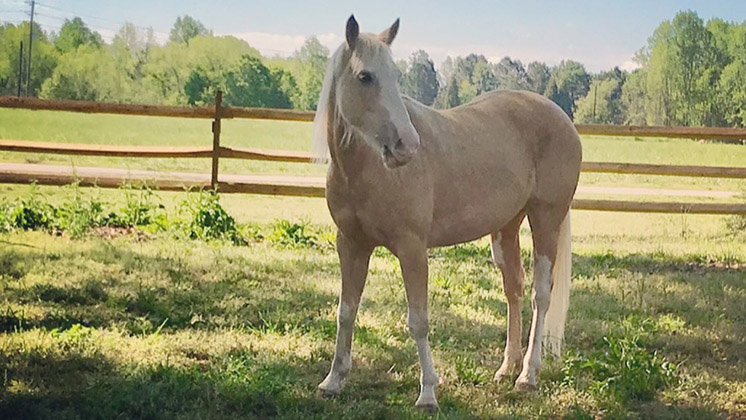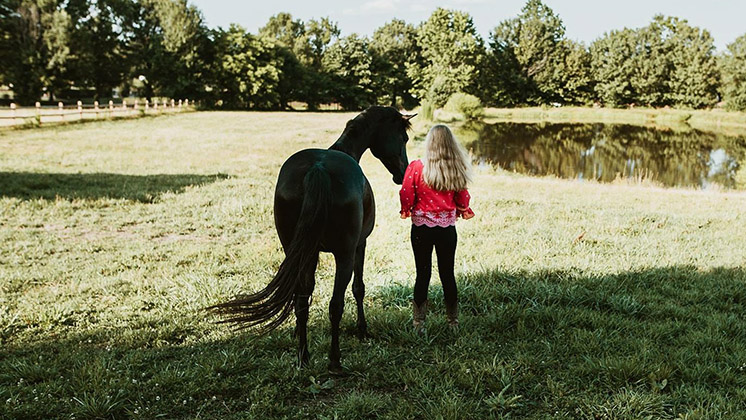Anthropomorphizing in Equine-Facilitated Learning and Psychotherapy

Horses have long been seen as powerful partners for humans, offering comfort and insight in equine-facilitated learning and psychotherapy (EFL/P). But as we interpret their behaviors, are we truly understanding them—or simply projecting our own emotions onto them? A recent study explores this complex issue, questioning how anthropomorphizing (assigning human traits to animals) impacts both human healing and equine welfare.
What the Study Explores
The research, conducted by John et al. (2025), examines how practitioners of EFL/P use anthropomorphizing in therapy sessions. While this approach can help humans relate to horses, it may also lead to misunderstandings about equine behavior. Using feminist and intersectional theories, the study argues for a "critical reflexivity"—a deeper, more conscious way of interpreting equine actions that respects both human emotions and horse welfare.
The research team conducted 11 in-depth interviews with EFL/P practitioners from the HERD Institute, an organization committed to inclusive and ethical EFL/P. Using these interviews, the researchers created two vignettes (short case studies) illustrating how anthropomorphizing can both help and harm therapy sessions.
The Two Sides of Anthropomorphizing: Key Takeaways
- The Problem: Misinterpreting Equine Behavior
- In one vignette, a therapy participant sees a horse "hoarding" food and interprets it as selfishness and greed, similar to human economic inequality.
- However, the therapist knows that horses' resource-guarding behavior is shaped by human-controlled feeding schedules, not social dominance.
- The challenge? If the therapist fully embraces the client’s perspective without guiding them, it might reinforce harmful narratives about both human and equine behavior.
- The Potential: Anthropomorphizing as a Tool for Human Growth
- In another vignette, a client believes a horse is "talking" to them, saying they do not want to pick up their hoof.
- While this is likely the client projecting their own fears, the therapist can use this moment to discuss boundaries, consent, and confidence.
- This approach allows anthropomorphizing to serve as a bridge to deeper self-awareness, rather than a potentially inaccurate assumption about the horse’s emotions.
The Role of "Critical Reflexivity"
The researchers argue that practitioners must balance empathy with knowledge of equine behavior. Instead of blindly accepting human-like interpretations, therapists should:
- Encourage clients to reflect: "What story are you telling yourself about this horse’s actions?"
- Teach accurate equine welfare: Horses don’t "bully" or "refuse to cooperate"—they react to their environment and training.
- Prioritize equine welfare: If a horse "chooses" to engage in therapy, are they truly consenting—or just conditioned to comply?
Why This Matters
This study is a call for ethical responsibility in equine-facilitated learning and equine-facilitated psychotherapy. Anthropomorphizing isn’t inherently bad—it can help clients process emotions—but it must be used thoughtfully to ensure both human healing and horse wellbeing. The key? Mindful interpretation, guided by both empathy and science.
Read the Research Paper
This article was based on the research of Dr. Leanne Nieforth and the HAPI lab. Read the research:
Suggested Articles

How Equine Communication Transforms Trauma Healing
Discover how equine-assisted mental health uses the unique nonverbal communication of horses to transform trauma healing, offering powerful breakthroughs for PTSD, anxiety, and depression.
Read more
PTSD Service Dogs for Veteran Families
Discover how PTSD service dogs impact not just veterans but their families, highlighting benefits like increased activity participation alongside challenges like caregiver burden and satisfaction.
Read more
How Horses Help Adolescents Build Resilience
Discover the transformative power of Equine Assisted Psychotherapy (EAP), blending traditional therapy with horse-guided healing to help adolescents overcome trauma, build resilience, and foster emotional growth.
Read more
